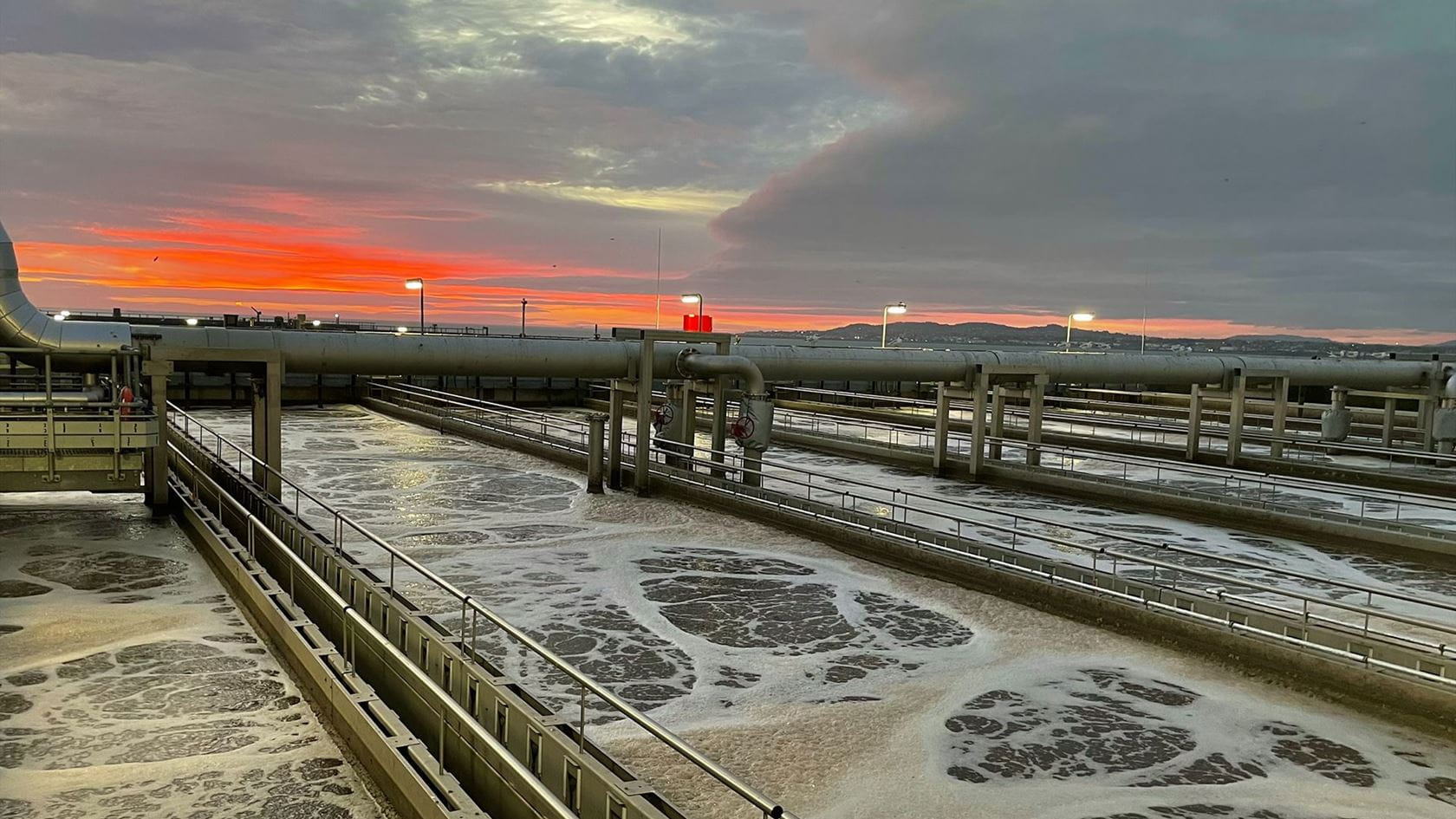100th waste treatment plant using TU Delft's Nereda technology built in Florida
Twenty-five years after the birth of the award-winning Nereda® technology in TU Delft's Mark van Loosdrecht's lab, the 100th Nereda® waste treatment plant is now nearing completion. These plants can now be found all over the world, from Brazil to Sweden and from South Africa to the United States. The plants all use the Nereda® biological treatment process that uses up to 50% less electricity and little or no chemicals compared to conventional sewage treatment plants.
Our goal is to either return our sewage water to nature as clean as possible or to reuse it. To achieve this in a sustainable manner and at the lowest possible cost, the Netherlands put considerable effort into developing ever better technologies. After the lab of environmental biotechnologist Mark van Loosdrecht discovered a revolutionary new approach to water treatment, it took less than a decade to put it into practice. This pioneering technology was dubbed Nereda® after a Greek water nymph who symbolises the pure water that this process produces.

Energy-efficient water treatment
What makes this treatment method so special is that the bacteria grow in granules instead of flocs, which settle much faster: easily reaching settlement rates of 1 m / 4 minutes, which is considerably quicker than the 1 m / 60 minutes achieved with conventional treatment methods.
Not only does granular sludge exhibit excellent settling properties, but each single granule can also host all organic treatment processes at the same time. This is because the pellets contain oxygen-rich, oxygen-poor and anoxic zones, enabling different types of bacteria to get to work simultaneously. This marked a significant departure from traditional water treatment techniques, which required different spaces for different processes. As a result, all the energy-guzzling pumps and other mechanical equipment needed to move the organisms from one space to another were promptly eliminated. This, in turn, has given rise to greener, simpler plants. In fact, Nereda plants can be up to four times smaller and 50% more energy-efficient, while requiring no or far fewer chemicals.
From the lab to commercial application
Nereda’s origin story is an exceptional account of how fundamental research into the structure and shape of a slimy layer of microbes led to new reactor technology, which has been adopted by the market and has conquered the world at lightning speed.
Mark van Loosdrecht's group first succeeded in growing the desired granular sludge in 1997. In 2002, through a public-private partnership with Royal Haskoning DHV (formerly DHV), STOWA, the Dutch water boards and TU Delft, the technology was transformed from a lab finding to a commercial application within a 10-year time frame. Fast is somewhat of an understatement, especially if you consider that the average water treatment plant has a lifespan of anywhere from 25 to 50 years, while building and scheduling plants can take up to 5-7 years.
Sustainable agriculture, construction and materials
And the uses of this new technology goes beyond sustainable treatment alone: further research by Mark van Loosdrecht's group into how the bacteria attach themselves to each other led to Kaumera, which is making its way to the market as a new biopolymer for the sustainable construction, agriculture and materials industries. Kaumera Nereda® Gum is a new raw material extracted from the excess sludge produced in the Nereda® treatment process.
The first larger applications are in using Kaumera in agriculture applications. It can replace non-biodegradable oil-based polymers in the coating of seeds or pelletisation of fertilisers. But it can also be used as soil improvement enhancing the water binding capacity of the soil and also stimulate plant growth. On the longer term Kaumera can among others be used to produce composite materials that can be used in the building industry. Cellulose and Kaumera can be formed into fire-retardant façade plates.
More information: Nereda News Royal Haskoning DHV